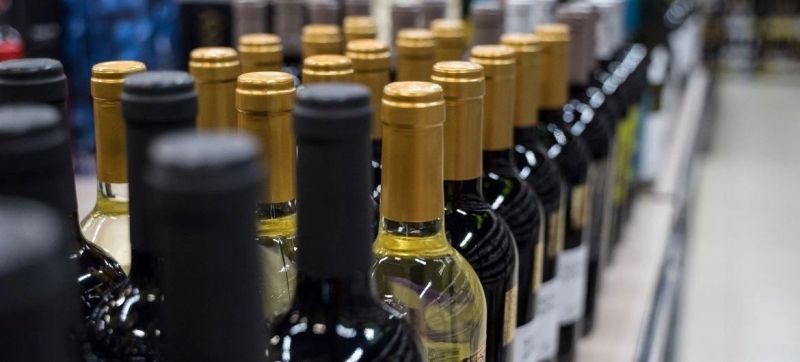
Reducing alcohol consumption helps prevent cancer. Science Shows: Smart Alcohol Policies Help Prevent Cancer Health
Alcohol causes cancer, undermines economies and harms societies throughout the WHO European Region. Today, WHO/Europe and the International Agency for Research on Cancer (IARC) have a simple message to governments: “Good alcohol policies are one of the smartest investments you can make.” These measures save lives, save money, deliver immediate results, and are now backed by one of the most rigorous scientific reviews in the world.
The 20th volume of the IARC Cancer Prevention Handbook Series marks the first time that the agency has assessed efforts to prevent alcohol-related cancer. The publication examines the connection between reducing or stopping use and the risk of cancer. A separate volume is devoted to policy issues aimed at reducing alcohol consumption.
Prepared by an independent panel of international experts using strict and transparent procedures to avoid conflicts of interest, the IARC guides provide comprehensive reviews and consensus assessments of cancer prevention interventions. Governments can use them to develop recommendations and policies.
The findings of the authors of Volume 20 leave no doubt: increasing taxes on alcohol, limiting its availability and strict advertising bans reduce alcohol consumption at the population level and, accordingly, reduce the burden of cancer diseases.
What’s at stake
The European Union is the region with the highest alcohol consumption in the world, where cancer has become the leading cause of death. In 2020, alcohol caused 111,300 new cancer cases in the EU, including bowel (36,900), breast (24,200) and oral (12,400). Almost 70 percent of cases occurred in men.
In 2018, premature deaths from alcohol-related cancer alone cost EU countries €4.58 billion. And this is only a small part of the total cost: hospitalizations, injuries, violence and lost productivity cost society tens of billions. taxpayers,” said Dr. Gundo Weiler, Director of the Department of Prevention and Health Promotion at WHO Europe.
“In 2020, alcohol was responsible for more than 93 thousand deaths from cancer in our region alone. Some call alcohol “cultural heritage”, but illness, death and disability should not be part of European culture. We now have the most convincing evidence of how to turn the tide,” he added.
New in IARC reference books
Alcoholic beverages were recognized as carcinogenic to humans (group 1) several decades ago. A new volume of guides shows that alcohol policies reduce consumption, and reducing or avoiding alcohol reduces cancer risk.
“Alcohol causes at least seven types of cancer,” said Dr. Elizabethe Weiderpass, director of IARC. – The 20th volume of the reference books is a historical milestone: in two parts it is proven that measures to limit alcohol at the population level reduce its consumption, and reducing consumption reduces the risk of cancer.”
Measures that have proven their effectiveness effectiveness
An international panel of independent experts reviewed studies assessing the impact of tax increases, price increases, restrictions on the availability and ban on alcohol advertising, and comprehensive policy measures.
Experts have concluded that the following measures lead to a reduction in alcohol consumption at the population level:
• increasing taxes or establishing minimum prices;
• raising the minimum age for purchase or consumption alcohol;
• limiting the density of points of sale, as well as days and hours trade;
• strict bans on advertising alcohol;
• state monopoly on sale;
• other comprehensive measures.
Advantages of implementing these measures
These approaches help governments:
• save lives – reducing consumption prevents disease and premature death death;
• save money – tax policy not only reduces consumption and harm, but also increases budget revenues, which can be allocated to healthcare and restoration;
• give a quick effect – results are visible after 5 years, that is, within one political cycle;
• based on science – IARC estimates are based on independent and reliable data and serve as global standard.
Political aspect
However, reducing overall consumption is only part of the solution. Millions of people in the region suffer from alcohol addiction, and only a few get help. Increasing access to effective, evidence-based treatment and support is essential, especially when combined with early detection and strict control of the availability and advertising of alcohol.
“The WHO European Region cannot afford the illusion that alcohol consumption is harmless,” Dr Weiler stressed. “As well as better understanding the real harms of alcohol, we now have clear data on how we can reduce the number of cases and deaths from cancer. The potential for lives saved is enormous – tens of thousands.”
High-level event
The official presentation of the 20th volume of the IARC reference books took place on October 14 in Copenhagen (Denmark) as part of a two-day event organized by WHO/Europe and IARC in the framework of the joint project “Science into Action against Alcohol”.
